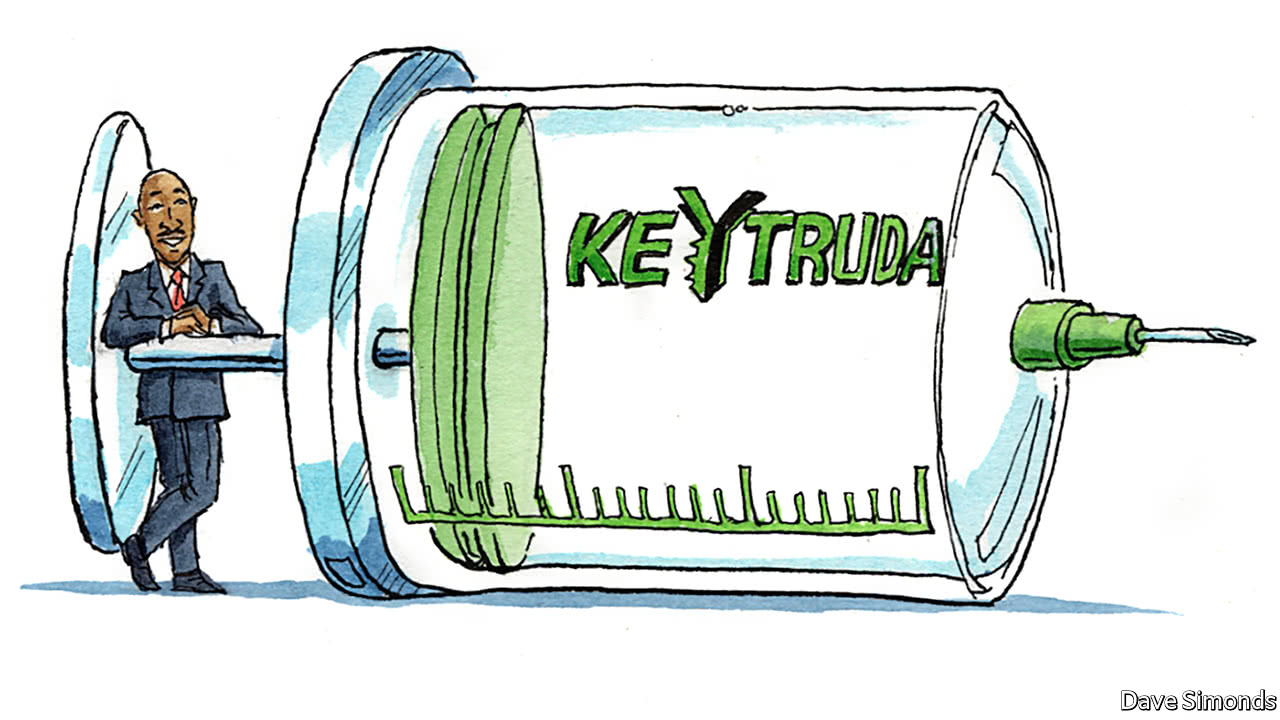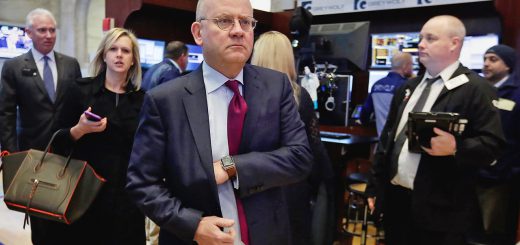A pharmaceutical firm bets big on a cancer drug
WHEN Ken Frazier, chief executive of Merck, an American pharmaceutical giant, started his job in 2011, he had a hard decision to make. The firm had promising new drugs—such as Januvia, for diabetes, and Gardasil, a vaccine against cervical cancer. But the pharma industry was struggling with dismal returns on R&D and investors were questioning if companies were overspending on science. Some surrendered and started buying in drugs instead. But Mr Frazier opted to carry on backing his labs and promised publicly to spend on R&D for the long term, not for the stockmarket’s immediate gratification.
An opportunity to implement the pledge soon arrived. Merck’s merger with another pharma firm, Schering-Plough, in 2009, had brought it an obscure new cancer drug. At first Merck’s scientists were unimpressed and relegated the drug to a list of assets to be licensed out. There was widespread scepticism at the time about whether drugs that attacked cancer using the immune system would…








